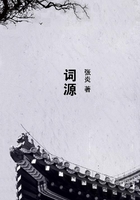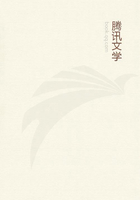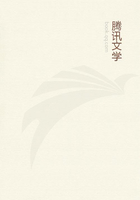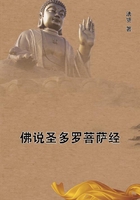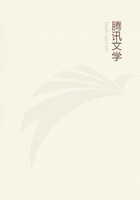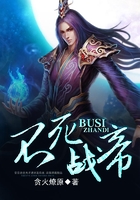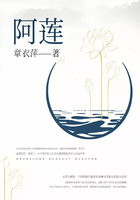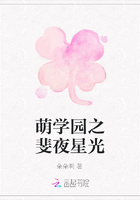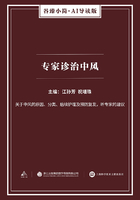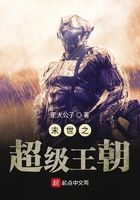A CHAPTER OF ART
WHEN a baby is perfectly healthy and has had enough to eat and has slept all it wants, then it hums a little tune to show how happy it is. To grown-ups this humming means nothing. It sounds like "goo-zum, goo-zum, goo-o-o-o-o," but to the baby it is perfect music. It is his first contribution to art.
As soon as he (or she) gets a little older and is able to sit up, the period of mud-pie making begins. These mud-pies do not interest the outside world. There are too many million babies, making too many million mud-pies at the same time.
But to the small infant they represent another expedition into the pleasant realm of art. The baby is now a sculptor.
At the age of three or four, when the hands begin to obey the brain, the child becomes a painter. His fond mother gives him a box of coloured chalks and every loose bit of paper is rapidly covered with strange pothooks and scrawls which represent houses and horses and terrible naval battles.
Soon however this happiness of just "making things" comes to an end. School begins and the greater part of the day is filled up with work. The business of living, or rather the business of "making a living," becomes the most important event in the life of every boy and girl. There is little time left for "art" between learning the tables of multiplication and the past participles of the irregular French verbs. And unless the desire for making certain things for the mere pleasure of creating them without any hope of a practical return be very strong, the child grows into manhood and forgets that the first five years of his life were mainly devoted to art.
Nations are not different from children. As soon as the cave-man had escaped the threatening dangers of the long and shivering ice-period, and had put his house in order, he began to make certain things which he thought beautiful, although they were of no earthly use to him in his fight with the wild animals of the jungle. He covered the walls of his grotto with pictures of the elephants and the deer which he hunted, and out of a piece of stone, he hacked the rough figures of those women he thought most attractive.
As soon as the Egyptians and the Babylonians and the Persians and all the other people of the east had founded their little countries along the Nile and the Euphrates, they began to build magnificent palaces for their kings, invented bright pieces of jewellery for their women and planted gardens which sang happy songs of colour with their many bright flowers.
Our own ancestors, the wandering nomads from the distant Asiatic prairies, enjoying a free and easy existence as fighters and hunters, composed songs which celebrated the mighty deeds of their great leaders and invented a form of poetry which has survived until our own day. A thousand years later, when they had established themselves on the Greek mainland, and had built their "city-states," they expressed their joy (and their sorrows) in magnificent temples, in statues, in comedies and in tragedies, and in every conceivable form of art.
The Romans, like their Carthaginian rivals, were too busy administering other people and making money to have much love for "useless and unprofitable" adventures of the spirit.
They conquered the world and built roads and bridges but they borrowed their art wholesale from the Greeks. They invented certain practical forms of architecture which answered the demands of their day and age. But their statues and their histories and their mosaics and their poems were mere Latin imi- tations of Greek originals. Without that vague and hard-to- define something which the world calls "personality," there can be no art and the Roman world distrusted that particular sort of personality. The Empire needed efficient soldiers and tradesmen. The business of writing poetry or making pictures was left to foreigners.
Then came the Dark Ages. The barbarian was the proverbial bull in the china-shop of western Europe. He had no use for what he did not understand. Speaking in terms of the year 1921, he liked the magazine covers of pretty ladies, but threw the Rembrandt etchings which he had inherited into the ash- can. Soon he came to learn better. Then he tried to undo the damage which he had created a few years before. But the ash- cans were gone and so were the pictures.
But by this time, his own art, which he had brought with him from the east, had developed into something very beautiful and he made up for his past neglect and indifference by the so- called "art of the Middle Ages" which as far as northern Europe is concerned was a product of the Germanic mind and had borrowed but little from the Greeks and the Latins and nothing at all from the older forms of art of Egypt and Assyria, not to speak of India and China, which simply did not exist, as far as the people of that time were concerned. Indeed, so little had the northern races been influenced by their southern neighbours that their own architectural products were completely misunderstood by the people of Italy and were treated by them with downright and unmitigated contempt.
You have all heard the word Gothic. You probably associate it with the picture of a lovely old cathedral, lifting its slender spires towards high heaven. But what does the word really mean?
It means something "uncouth" and "barbaric"--something which one might expect from an "uncivilised Goth," a rough backwoods-man who had no respect for the established rules of classical art and who built his "modern horrors" to please his own low tastes without a decent regard for the examples of the Forum and the Acropolis.

